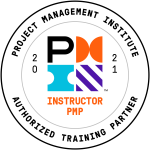Course Outline & Delivery Strategy (Through Online Zoom Platform)
Training Version:
6th Edition –The skills and Knowledge of Cost Engineering (AACEI)
Course Duration:
40 Contact Hours (Cumulative)
Course Description:
This course will provide a detailed overview of Cost Professional Modules. These 57 chapters will introduce you to an in-depth understanding of the task to perform throughout the project life cycle
Introduction:
Cost Engineers: Who Are They and What Do They Do?
What is cost engineering and who are the people we call cost engineers? The first place to seek an answer is the AACE International Constitution and Bylaws which states:
IT Professionals, Civil & Construction managers responsible for managing projects, portfolios, and programs can benefit from this course and learn to enhance their productivity using MS Project.
Article I-Section 2:
The Association is dedicated to the tenets of furthering the concepts of total cost management and cost engineering. Total Cost Management (TCM) is the effective application of professional and technical expertise to plan and control resources, costs, profitability, and risk. Simply stated, it is a systematic approach to managing cost throughout the life cycle of any enterprise, program, facility, project, product, or service. This is accomplished through the application of cost engineering and cost management principles, proven methodologies, and the latest technology in support of the management process.
Article I-Section 3:
Total cost management is that area of engineering practice where engineering judgment and experience are used in the application of scientific principles and techniques to problems of business and program planning; cost estimating; economic and financial analysis; cost engineering; program and project management; planning and scheduling; and cost and schedule performance measurement and change control.
Learning Objectives:
- Understand what makes up cost—i.e., the basic resources (material, labor, etc.) needed to perform an activity or create an asset.
- Understand the distinction between cost elements that are either directly or indirectly applied to an asset.
- Relate the cost elements to the life cycle of the asset: acquisition, use, and disposal.
- Use the understanding of cost elements to understand further how the cost is measured, applied, and recorded to arrive at the total activity and/or asset cost.
- Apply the knowledge gained to solve problems related to cost element source and definition.
- Differentiate between costing and pricing
- Identify the inputs, transforming mechanisms, and outputs related to the costing and pricing process.
- Understand the budgeting process.
Teaching and Learning Methodology:
A combination of lectures, discussions, exercises, and cooperative learning will be used. Active learning will focus on discussions based on trainee project scenarios related to the application of qualitative and quantitative methods that will facilitate decision-making in project cost-related problems in both the local and international contexts and assessed through standard structured response questions. Finally, a summative comprehensive assessment at the end of the course will assess comprehension of the core concepts.
Recommended Study Materials:
Outcome-Based Assessments:
The Assessment Strategy must follow the Strategy defined by this Examination Content Outline. All ECOs need to be covered.
Examination Content Outline (Eco’s)
COST:
- Cost Elements
- Pricing Materials
- Labour
- Engineering Equipment, Parts, and Tools
- Economic costs
- Activity Based Cost Management
Cost Estimating:
- Estimating
- Process Product Manufacturing
- Discrete Product Manufacturing
Planning & Scheduling:
- Planning
- Scheduling
Progress & Cost Control:
- Progress Measurement and Earned Value
- Earned Value for Variable Budgets
- Tracking Cost and Schedule Performance
- Performance and Productivity Management
Project Management:
- Project Management Fundamentals
- Project Organisation Structure
- Project Planning
- Project Labour Cost Control
- Leadership and Management of Project People
- Quality Management
- Value Analysis
- Contracting for Capital Projects
- Strategic Asset Management
Economic Analysis:
- Basic Engineering Economics
- Applied Engineering Economics
Statistics, Probability, & Risk
- Statistics & Probability
- Basic Concepts in Descriptive Statistics
- Risk Management



